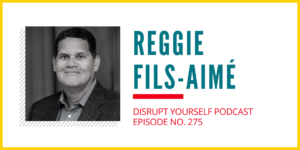On Friday evening, my husband invited some students from Southern Virginia University over for dinner.
Well, actually, he invited one student, who then invited four friends.
Before they came over, I was a little anxious – not about the meal; my husband and daughter make delicious meals. They had smoked ribs, made potato and green salads, and had fresh raspberries from our garden.
My anxiety was about how the event would go: did I have the energy to be sociable, would everyone be socially comfortable? Do the students really even want to spend time with us?
As it turned out, it went splendidly. It was a warm but mild day, slightly overcast; we sat on our deck and shared stories: how each of them came to SVU, stories of their childhood, stories that shape who they are.
When they left, I felt energized rather than drained. I couldn’t think of a better way that I could have used those two hours.
A few years ago, I had Laura Vanderkam, a time management expert and author of Off the Clock, on the podcast (and I am very much looking forward to having Richie Norton, author of Anti-Time Management as my guest in a couple of months).
But here’s what I am trying to remember when it comes to things like inviting people over for dinner:
According to Vanderkam, we have three selves.
The anticipating self that wonders and worries about the future.
The experiencing self focused on the here and now.
The remembering self that thinks back to the past.
She says, “Creating more memories—and creating more time and having a more fulfilling life is privileging the anticipating and remembering selves above the experiencing self.”
Frankly, the experiencing self is frequently anxious and inclined to think everything is too difficult, awkward, expensive, whatever….
The anticipating self may think it will be lovely to have people over for dinner and get better acquainted, to feel a sense of belonging in our community. The remembering self will do what I am doing right now, talking about how lovely the occasion, now a memory, was. But the experiencing self is often a spoiled child, prone to tantrums.
I am tired.
We’ll need to clean the house.
It’s too awkward to talk to people I don’t know.
I’d rather watch a K Drama.
She concludes, “It’s the effortful fun that makes today different and makes today land in memory.”
Not making an effort is, of course, easier than making an effort. But it also leaves our days flat and unmemorable, lacking distinction one from the other, days on end.
If time feels like it is passing too quickly, it may be because you need more new S Curves of Learning to make new memories.
I suggest that if something sounds wonderful to do in two weeks, two months, or two years, even if it will require effort and/or discomfort, it will also be something that you will look back on with pleasure, happy that you did it.
Think about the things you almost didn’t do (like, we almost didn’t go sailing as a family a year and a half ago, or even having guests for dinner this past Friday) and remind yourself that you complained about the effort demanded by those memorable events too, likely a lot.
And then tell your tantrum-throwing experiencing self that whatever new challenge is on the horizon, you will do it anyway. Letting the experiencing self run the show basically means no show. Silence it.
Your future self will thank you.
This week’s podcast episodes are Lindsey Shipley, a collegiate athlete and cancer survivor turned entrepreneur, and Reggie Fils-Aimé, former CEO of Nintendo America.
You’ll love both for very different reasons. Please share with a colleague or friend!
As always, thank you for being here, and may your future self thank you too!
My best,
Whitney



